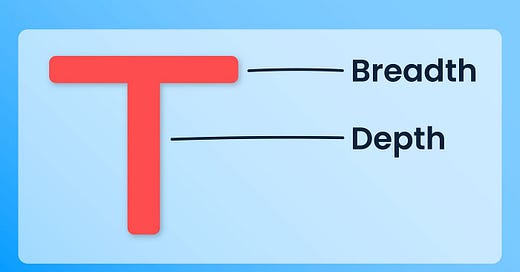My name is Divya Ganesan and I’m a born and raised generalist. As a kid, my parents enrolled me in piano, ballet, Model UN, soccer….the list goes on. The pattern extended for me to middle school and high school as I simultaneously pursued app-development, building historical websites, and creating civic engagement/digital literacy curriculum for high schoolers, while also training for a 3 hour Indian Dance Debut Solo (called an Arangetram). I list these interests not to be obnoxious but rather set the stage of the dilemma I am starting to face in my second year at Stanford.
After a freshman year of fun and exploration, Sophomore year has presented a pivot point point where my peers and I must ask ourselves: What is the purpose of my college education and how does this inform my choices? I’ve gone through a series of definitions in my head:
College is about changing and refining the way I think. 🤔
College is about discovering who I am and who I want to be. 🤪
College (at Stanford specifically) is about leveraging networks and resources, and taking risks while I still can. 🌐
This has manifested itself in a series of different questions about majors, summer internships, quarter abroads and more. I’ve thought to myself: Should I do a Symbolic Systems because it’s a cool way of thinking (even though I’m not sure anyone really knows what it means)? If I love learning about cybersecurity should all my summers and coursework surround this topic? What about my other interests in polarization, journalism, South Asian culture?
In sum, how do I reconcile my generalist nature with a growing desire (and pressure) to specialize?
I didn’t know the answer. I honestly still don’t know entirely. But talking to some of my mentors and teachers gave me some helpful ways of thinking about the age old depth vs breadth debate.
Professor David Demarest, former Director of Communications for the Bush White House, and currently teaching a Strategy seminar at Stanford, reminded me that “Generalists rule the world.” The best leaders are able to leverage a series of skills to learn and act quickly. My Hoover National Security mentor, Jimmy Harrington, who has spent his career doing cybersecurity for the Air force, presented a slightly different take:
Specialists get to positions of power. Generalists yield them.
In this sense, the best leaders must be both generalists and specialists: the real question is when you choose to build and execute the skills. Professor Demarest suggested a “T-diagram” visualization for us generalists wanting to go deep: If the top of the T is the ways in which you think and approach problems, your 1 or 2 verticals should be the ways in which you apply your thinking to specific problems/interest areas.
I found a passion for thinking about cybersecurity and our information ecosystem early on in my Stanford career. I worked in cybersecurity policy last Summer and plan to work in cybersecurity technical this Summer. My inner generalist voice yelled at me. “Don’t confine yourself!! Keep your options open!!” Going deep has required a mindset shift for me: finding specialities doesn’t have to be confining. In fact, it can be freeing, as I maximize opportunities, develop competitive advantages, build strong networks, and create a foundation for which to explore intersections and relations.
I don’t know if there is a singular way to approach college and a larger vision. Different mindsets may work better for different people. But as a native generalist, I’m starting to embrace my specialization era as my next step in pursuing greater visions (running for office, starting a company, making a movie….who knows!)
— DG




